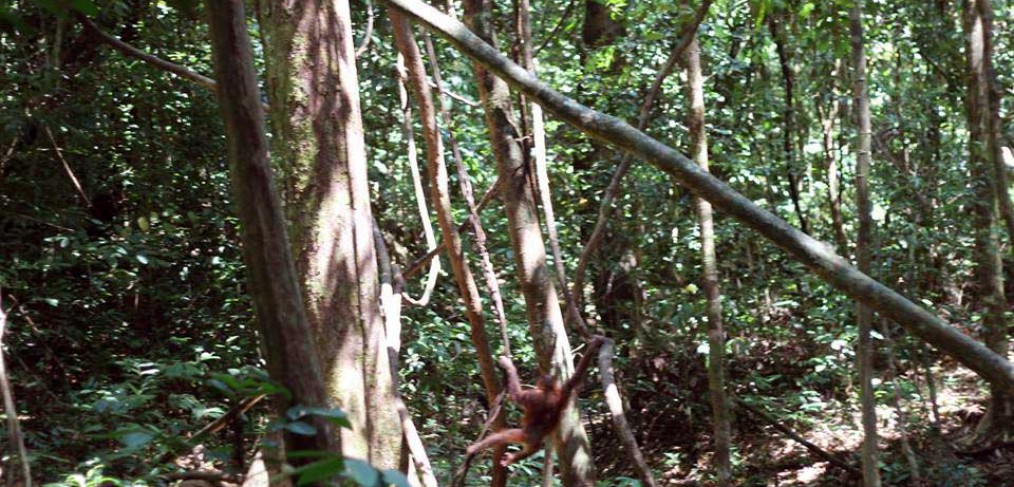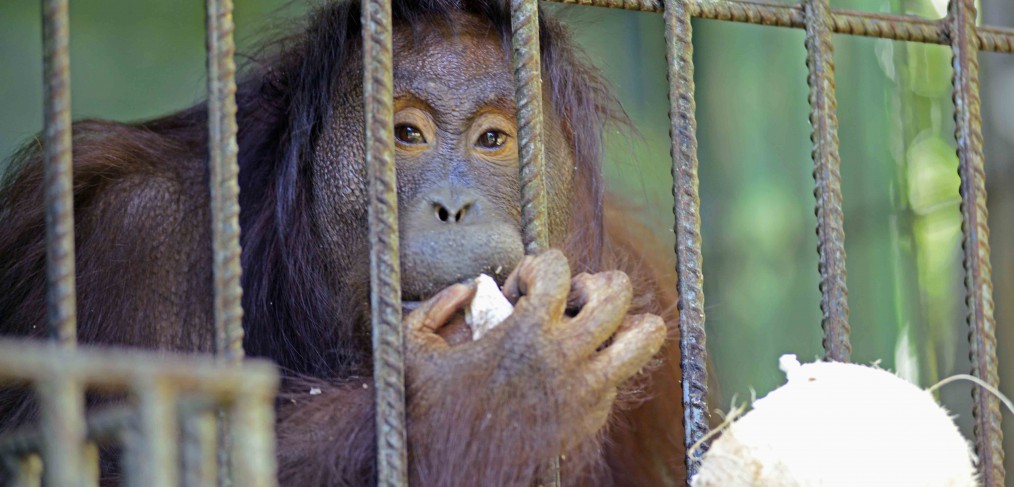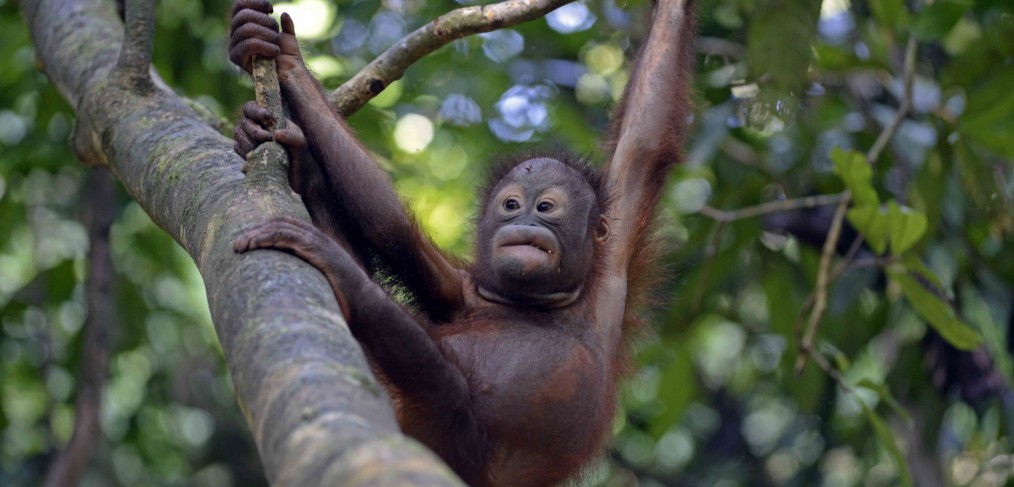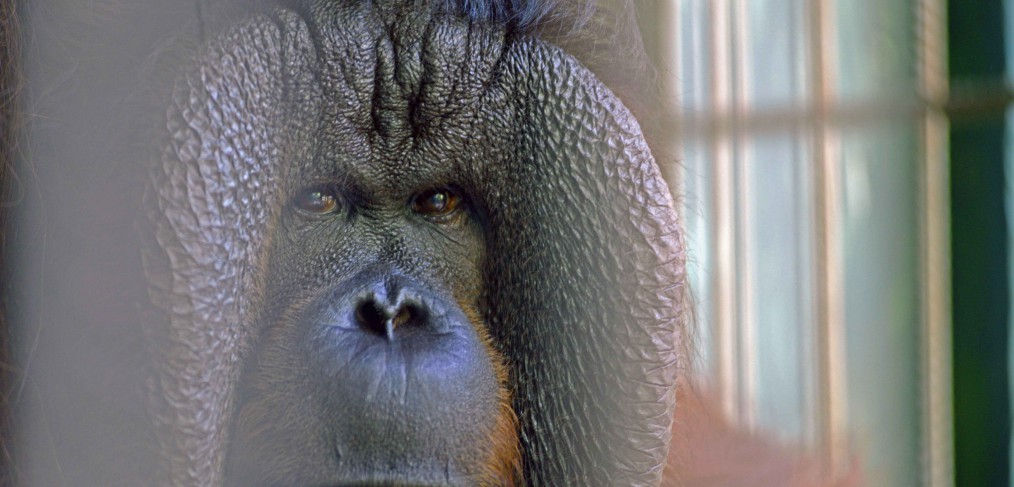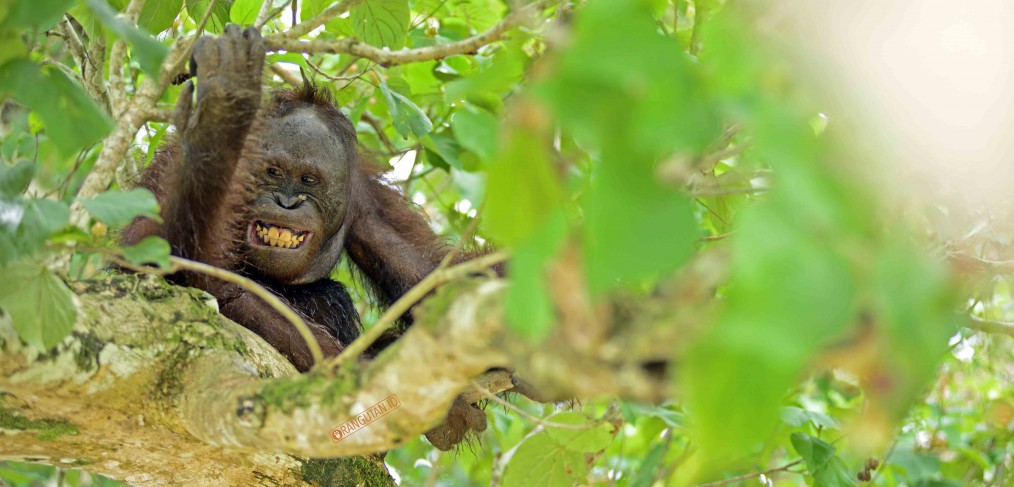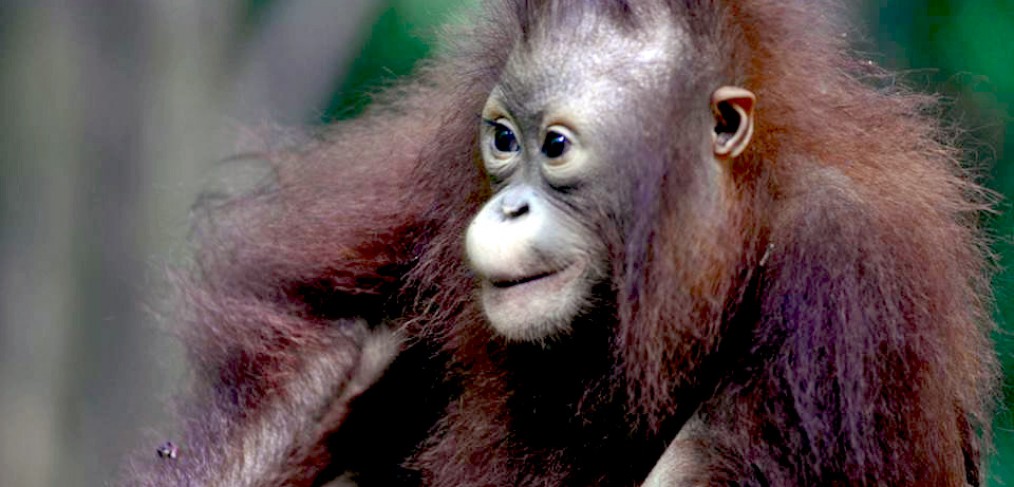This is Annie, an orangutan who has just been in the COP Borneo forest school for 6 months. Annie is a 5-year-old male orangutan. On the first day, he received bullying from the other orangutans. But that doesn’t make him go back to his cage. He chooses to go to his animal keeper, Jhonny, who can defend him if the bullying happens. Without the presence of Jhonny, Annie chose to not go out of the cage to undergo forest school.
What happened when Jhonny took him to forest school? Annie climbed the tree, away from the forest school location and played alone. According to Jhonny, Annie is often seen getting food in the trees.
Like other orangutan children in the forest school, at noon, Annie will go down to the ground and join other orangutans, playing on the forest ground. Based on the records of the animal keeper, Annie hasn’t seen making a nest yet.
2018 has just passed, the existing report is still too early. Annie’s spirit is the hope of COP Borneo. We are waiting for Annie’s development in the next semester. (IND)
ANNIE SELAMA 6 BULAN DI SEKOLAH HUTAN COP BORNEO
Ini dia Annie, orangutan yang baru masuk kelas sekolah hutan COP Borneo selama 6 bulan ini. Annie adalah orangutan jantan berusia 5 tahun. Hari pertama masuk kelas mendapat perundungan dari orangutan yang lebih dahulu masuk kelas ini. Tapi bukan berarti dia memilih untuk berada di dalam kandang saja, tapi dia memilih animal keepernya, yang tentu saja bisa membelanya jika perundungan itu terjadi. Pilihan itu pun jatuh pada Jhonny. Tanpa kehadiran Jhonny, Annie memilih untuk tidak keluar kandang untuk menjalani kelas sekolah hutan.
Tapi apa yang terjadi sesaat Jhonny membawanya ke sekolah hutan? Annie memanjat pohonnya, menjauh dari lokasi sekolah hutan dan bermain sendiri. Menurut Jhonny, Annie sering terlihat mendapatkan makanan di atas pohon.
Seperti anak orangutan lain yang berada di kelas sekolah hutan, saat siang hari, Annie akan turun ke tanah dan bergabung dengan orangutan lainnya, bermain di lantai hutan. Berdasarkan catatan animal keeper, Annie belum terlihat membuat sarang.
Tahun 2018 baru saja berlalu, rapot yang ada itu masih awal. Semangat Annie adalah harapan COP Borneo. Kita tunggu perkembangan Annie semester depan yuk.

